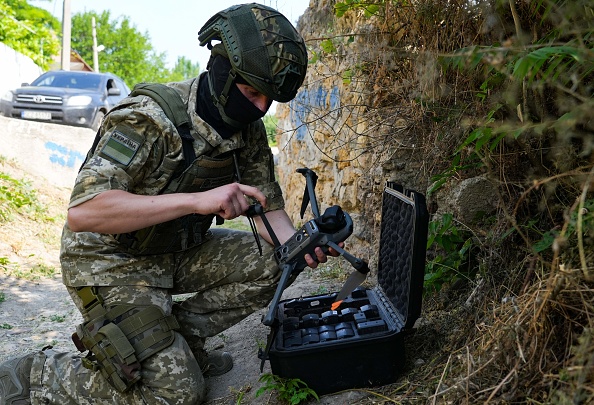The recent conflict in Ukraine is evidence that that drone technology is no longer a monopoly enjoyed by a few Western powers. UAV technology has matured significantly so that almost anyone with a 3D printer could manufacture something capable of delivering a credible threat on the battlefield. Which begs the question, what is the difference between a dual-use drone and a military drone…and why should anyone care?
The UK Parliamentary briefing paper describes arms exports as ‘the export of military and dual-use items’. So, one answer to ‘why should anyone care?’ is that exporting military drones under the wrong export licence (or no licence) breaches the Export Control Order 2008, which carries a maximum penalty of 10 years imprisonment.
Pitfalls. When drones become military goods
A common mistake is to classify any drone as dual-use because it is not a traditional weapon system. However, for any manufacturer or distributer of drones, the key words are in Schedule 2 of the Export Control Order 2008 – a UAV ‘designed or modified for military use’ is a military good.
Amongst other issues, this means whenever someone sells their drone abroad, or even takes it out of the UK to a foreign tradeshow, obtaining the wrong export licence could lead to a delay at the airport. It could also lead to being investigated for potential arms trafficking.
Take for example a UAV that is designed as racing drone. It has potential to be used for battlefield reconnaissance, and therefore rightfully classed as a dual-use item. However, if during its design life, the manufacturer incorporated design features that target the military market, it may have crossed the line into a military drone, and therefore subject to UK and international arms controls on military goods.
Military goods versus dual-use items
The difference between a military and a dual-use drone is a matter of fact. This means looking for features that are inconsistent with the civilian market. Examples could include TAK integration, NETT Warrior compliance, sockets and adaptors suited for military radios, AI recognition software with databanks of military vehicles, resistance to GPS denial, and much more.
Furthermore, the difference between military use or dual-use is not hidden ‘under the box’. The difference can be face-value. So, if a website advertises that a drone is designed by or for the military or its use is closely associated with the military, then the UK authorities are likely to treat it as a military good.

Implications of arms controls on UK exports
The key takeaway for any drone manufacturer is that designing or adapting drones for military use, or advertising as such, could accidentally trigger arms controls. Furthermore, classifications are not consistent internationally.
This creates a risk that something purchased as a dual-use drone in the USA, would be treated as military goods by the UK. For manufacturers and distributors who are importing/exporting, or brokering deals between different countries, this could have dramatic impacts if the right licences are not obtained beforehand.
More widely, not clearly distinguishing between dual-use and military goods means that a drone manufacturer can accidently become an arms manufacturer. This can cause unintended consequences with shareholders, banks and investors, creating significant impact to the company as well as personal liability on the company directors.
Conclusion
In this blog we have addressed drones as just one example where arms control impacts UK exports, but these rules also apply to goods ranging from software to PPE to cameras.
Whenever anyone considers engaging with military buyers, or knowing that their products are likely to be used by the military, they need to fully understand the legal consequences to their decision.
In addition to the UK’s Export Control Order, other rules apply such as United States ITAR/EAR, the EU Common High Priority List of prohibited exports to Russia, and the UN Security Council Consolidated List of sanctioned individuals and organisations. The opportunity in the defence market is there, provided that taking the opportunity also means taking care and taking good advice.
If you would like to discuss any aspect of export of all goods, please get in touch with Proelium Law.






